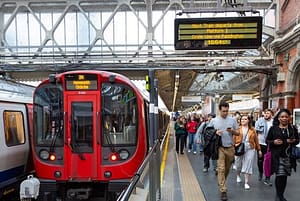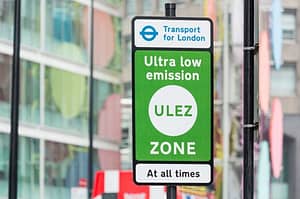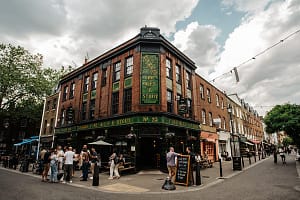Transport for London set to trial the new badge
Alice Ravenscroft can’t walk or stand for longer than 20 minutes due to a serious injury a few years ago. When commuting to work in Liverpool Street, she would like the option of being able to signal to other passengers that she needs a seat without having to ask.
Ravenscroft argues that a significant amount of people suffer with “invisible disabilities or conditions” and the use of a badge to signal to fellow passengers could help them greatly.
The 27-year-old Londoner is working with Transport for London to roll out the “Less Able to Stand” initiative which calls for the introduction of “Priority Seat” badges similar to the “Baby on Board” badges that pregnant women wear.
We spoke to Ravenscroft about the initiative:
Q. Tell us about your personal journey that led you to start the initiative?
A few years ago, I sustained a serious injury to my leg which has left me unable to stand or walk for longer than about 15 minutes. However this disability is not easily visible, which makes it difficult for people who don’t already know about it to understand my needs.
I live and work in London and have always relied upon the city’s public transport network to get around and commute to work. Following my injury, I quickly discovered that getting around London with a disability poses many challenges. Not only do most tube stations lack step-free access but being on a packed commuter train is especially difficult with a hidden disability because of the risk of not being able to get a seat, or of someone bumping into me.
My idea of creating a badge for people with hidden disabilities was inspired by the success of the Baby on Board badge. My aim is not only to make my own day-to-day life easier but also to make London a more inclusive city.
Q. What are the problems you faced?
The fear of not being able to get a seat has been a barrier to my independence and employment opportunities. I actually moved closer to where I work to make things easier, but living fairly centrally is an added financial burden. Although most people will give up their seat when I ask and explain about my disability, I have found it stressful to have to ask people on a daily basis, as people will occasionally react negatively. In my experience, people much prefer to give up their seat voluntarily than to be asked.

Alice Ravenscroft
Q. How are you planning to take the initiative forward?
Transport for London has let me know that they are moving the idea forwards and anticipate that the next step would most likely be a trial of the badge. I think this would be very positive: obviously I think my idea has the potential to improve people’s lives but I firmly believe in the importance of testing ideas out before implementing them. I don’t presume to fully understand the complex needs of people with disabilities across the capital so I would await positive results from a trial before continuing to advocate for the badge to be rolled out.
Q. What key points did your pitch to TfL contain?
Transport for London actually got in touch with me after I wrote a blog post about my idea. My blog explained my own personal experience with travelling around London and how a badge could be helpful, as well as exploring any counterarguments.
Q. What was their reaction?
TfL reacted positively, and informed me that they were pitching for funding to roll out a pilot initiative. They emphasised that the Baby on Board badge has been very successful and cost effective, and agreed that it is time to extend this to all groups who need a seat.
Q. What’s your ultimate ambition with the initiative?
I want to break down the barriers to independence faced by people with disabilities in London and beyond. I would love for London to become a more inclusive city, and if the badge is successful in London, I think it could be replicated in other cities in the future, in the UK and internationally.
I also want to raise awareness about hidden disabilities, to create a more caring and considerate society. I think this could be a helpful side-effect of the badge: reminding Londoners that there is more to people than what meets the eye, and that the people you pass on the street all face their own struggles and deserve compassion.






Leave a Comment